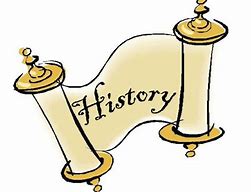History
What are we trying to achieve in History?
History has always been held in high regard at Purlwell Infant & Nursery School, with the school’s own rich history within the context of the local area is a celebrated and inspiring feature of the school. In History we aim to inspire pupils’ curiosity to know more about the past and equip pupils to ask perceptive questions, think critically, weigh evidence, sift arguments, and develop perspective and judgement. History helps pupils to understand the complexity of people’s lives, the process of change, the diversity of societies and relationships between different groups. It also helps children gain a sense of their own identity within a social, political, cultural and economic background. Due to this, we feel it is important for the subject to be taught discretely as well as incorporated within other curriculum subjects such as English and Art.


Through the teaching of History we aim to develop the pupils awareness of the past, using common words and phrases relating to the passing of time. They should know where the people and events they study fit within a chronological framework and identify similarities and differences between ways of life in different periods.
Children are given the opportunity to study a variety of primary and secondary sources, make predictions, build their historical knowledge and develop key history skills. ‘Big questions’ provide children with an enquiry-led approach to their learning, leading to them developing their own questions to investigate
They should begin to use a wide vocabulary of everyday historical terms and begin to ask and answer questions, choosing and using parts of stories and other sources to show that they know and understand key features of events. They should understand some of the ways in which we find out about the past and identify different ways in which it is represented.
The learning objectives of each lesson draw from knowledge and skills included in the National Curriculum and P-scale objectives to include all children in our school. Projects provide highly productive opportunities to use and apply literacy, numeracy and computing skills whilst learning history through a range of exciting, creative activities. Out of classroom learning is essential and many stimulating varied ‘beyond the classroom’ learning experiences regularly take place such as visits, visitors and local walks.

At Purlwell our aims are to ensure that all pupils: Gain a coherent knowledge and understanding of Britain’s past and that of the wider world which helps to stimulate pupils’ curiosity to know more about the past and begin to understand the process of change, the diversity of societies and relationships between different groups and their own identity and the challenges of their time .
How is the subject taught?
To contextualise the learning of History is taught under overarching topic themes and carefully chosen texts
In Reception, History comes under the curriculum area of ‘Understanding the World,’ providing links with people and communities. In Key stage 1 we begin to look in more detail at History in our local area, our country and significant people and events that occurred in the past and shaped our future,
History teaching is enhanced at every opportunity with visits within the local area such as local walks e.g walk to remembrance memorial in Batley and other local events such as exhibitions at the local library. Visitors such as past pupils from Purlwell are invited to school to talk about and discuss their experiences of childhood with present day pupils. Visitors and enactments of significant individuals is acted out by pupils and staff e.g Guy Fawkes, the queen visiting and History focussed open mornings.
Throughout the curriculum history vocabulary is developed, this progresses from role play opportunities and personal exploration and discussions during the early years to the study of more local significant events and individuals to more global events and significant individuals who shaped History in year 2.
Historical skills and vocabulary are used at every opportunity, for example, using photographs, artefacts, books, videos, walks, projects, visitors, Current affairs are part of a weekly class assembly whereby children are made aware of local and national events that are taking place and shaping the History of tomorrow.
Impact
Work scrutiny and discussions with pupils shows a progression of skills and an accurate recall of historical knowledge and application of skills. Children are able to apply and link their historical understanding to other areas of the curriculum and everyday life.
SMSC / PSHE / British Values
Through the History curriculum, our pupils will develop skills in other areas, such as Cultural awareness;
- Celebrating and respecting diversity in local, national and global communities.
- Recognising the things people and communities share in common
Moral understanding
- Develop an understanding of right and wrong and the consequences of their behaviour and actions.
Social skills;
- Engaging with British values (mutual respect and rule of law) and positively contributing to life in modern Britain
- Understanding rights and responsibilities as community members.
Spiritual awareness;
- Reflecting on experiences.

